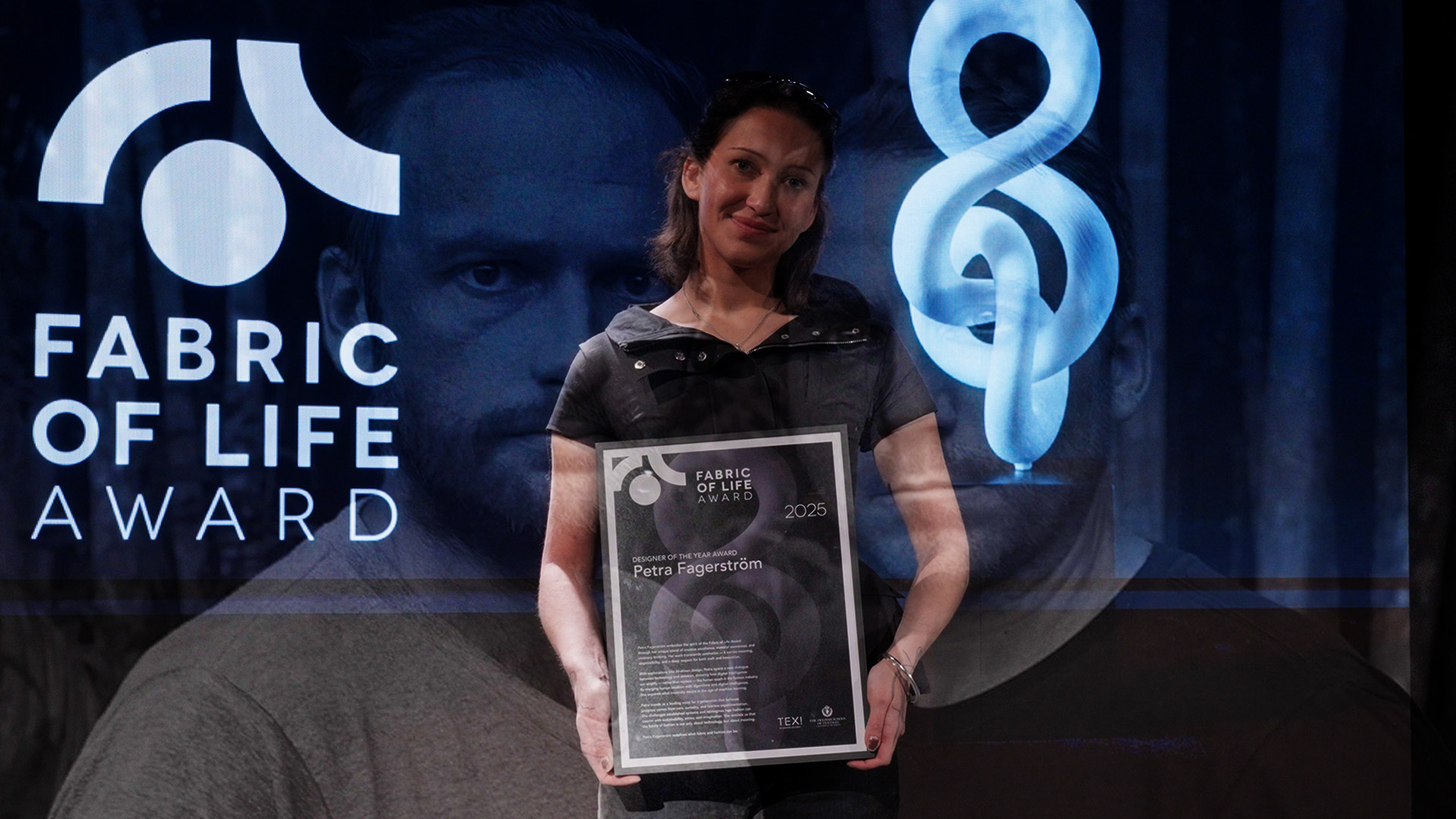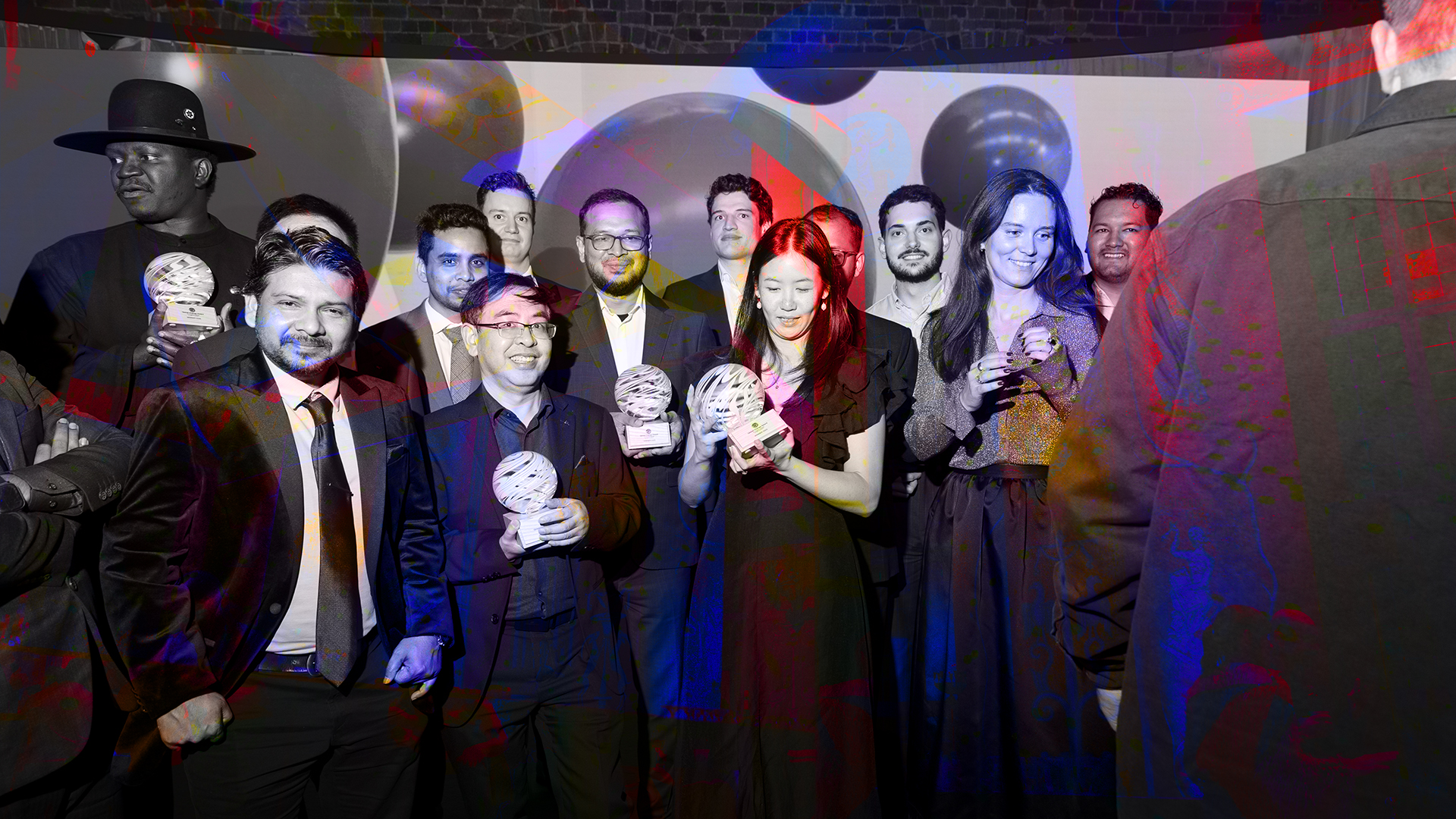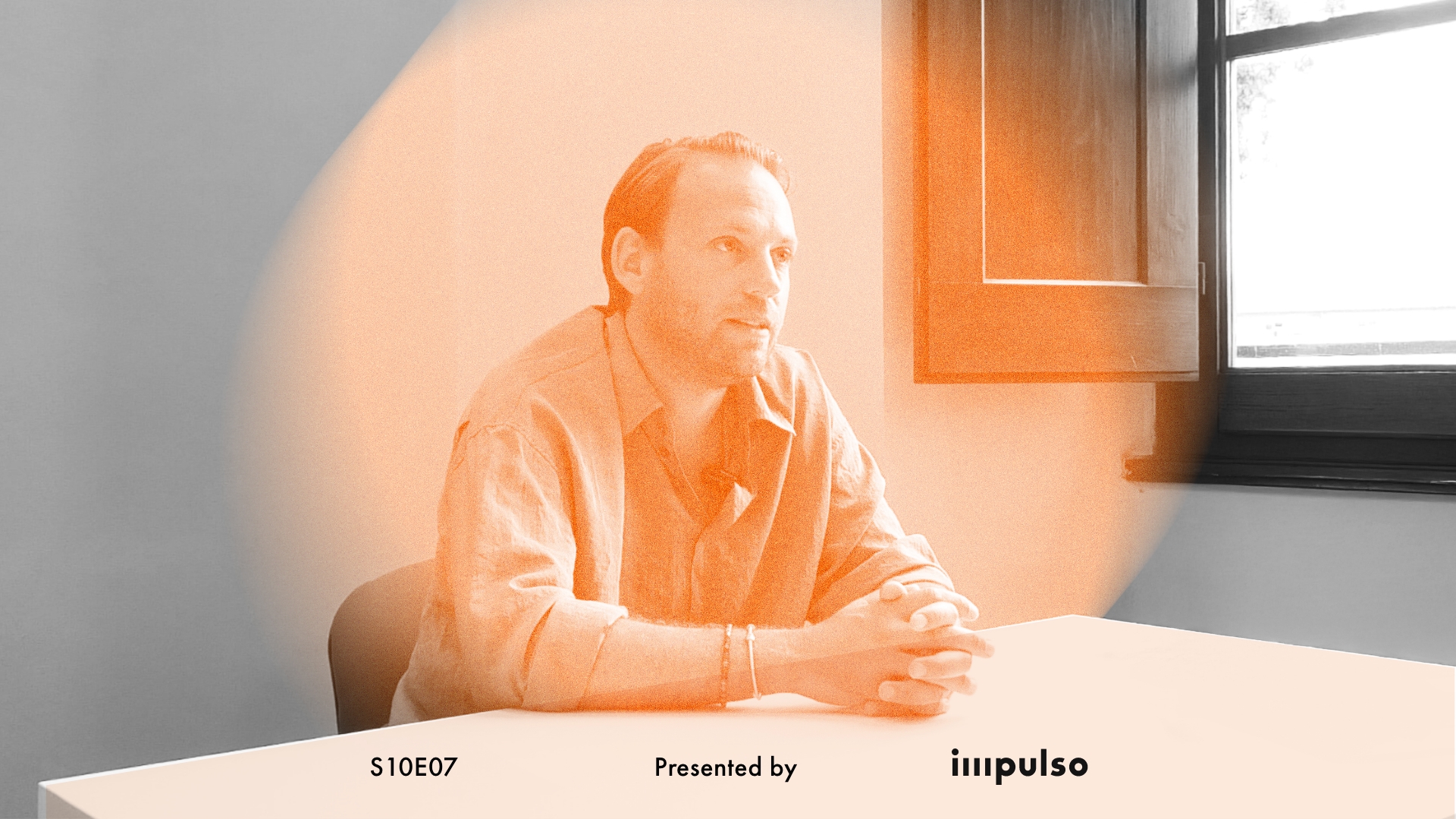
The Fabric of Life award celebrates extraordinary achievements in textile design, innovation, and sustainability that serve as an inspiration to the global community of the textile industry. The award was handed out during Borås Textile Days, when the Swedish city — known as the country’s textile capital — welcomed stakeholders and industry insiders for two days of panel talks, keynotes, and comprehensive insights.
Petra Fagerström is the recipient of this year’s Designer of the Year award. According to the jury, she ‘embodies the spirit of the award’ through her ‘unique blend of creative excellence, material awareness, and visionary thinking.’ Her work transcends aesthetics — it carries meaning, responsibility, and a deep respect for both craft and innovation.
Fagerström grew up in Sweden and, after studying in Paris, she began working in the fashion industry.
— I then won a couple of awards, which propelled me to pursue my own practice. I did an MA at Central Saint Martins and launched the brand together with my graduation collection, the first commercially available, last February. It’s stocked at Dover Street Market Paris, H Lorenzo, and 10 Corso Como, and now, we’re continuing to build the brand, she says, continuing,
— It’s quite crazy when you lay out this year; I just figured out what has actually happened. It means a lot to receive the award. I grew up around here, so to be able to come home and receive this award, with my family present, makes it extra special.
— It is quite a challenging industry, especially right now, and we spend a lot of time working in isolation in our studio. So, to have this kind of recognition really helps to feel that I’m on the right path and doing the right thing.
Why do you think you won? What makes you stand out?
— From what I’ve gathered, there’s a huge interest in my work with tech, which might set me apart a bit. I’m working with AI and developing an AI tool with SubStorm in Stockholm.
— There’s a huge fear of AI, and I think we’re quite focused on how it’s potentially taking our jobs. I’m trying to think more about how we can create the AI that does what we don’t want to do instead of doing the things that we actually want to do as creatives, to help creatives have more time to create.
And how do you aim to stand out in your sustainability work?
— Partially through the way we’re building the business right now. I have a sponsorship program with Chanel, where I reuse their old fabrics, which started a couple of years ago. Then, I won the CTF (Challenge The Fabric) Award in May where I connected with a lot of textile suppliers that work with man-made cellulose fibres. I then started working with them. It’s especially for when my quantities get bigger, when it gets way trickier to work with recycled fabrics and, especially, deadstock. Then, it’s about understanding the best fabrics that are new, if I had to choose one.
— I think it’s a combination of the tech part and also that we do a lot of slow craft. Those pieces are more like endemic couture, but it’s also an idea of bringing value to what’s handmade.

Veja wins this year’s Lifetime Achievement Award. The motivation honours founders and pioneers, Sébastien Kopp and François-Ghislain Morillion, for profoundly reshaping the traditional “take, make and waste” business model by placing planet and people ahead of profit. And, in the process of doing so, build a highly successful business.
— When we created VEJA twenty years ago, we wanted to create a brand of sneakers with a positive impact, Morillion remembers. We started with rubber and cotton supply chains — working with organic and fair-trade producers — and then we have started working with plastic bottle recyclers, organic cattle farmers. Our company is improving its impact year after year.
You’re also continuously investing in forward-thinking material innovation projects. What are you looking at now?
— We are very proud of our recycled plastic supply chain. We have built fair trade contracts with cooperatives in the South of Brazil, benefiting many catadores, who collect, sort and recycle waste. We connected this supply chain with our textile industrial partners, and we use this material in most of our inner linings. It is both an industrial and social innovation that gives value to the incredible work these people are doing.
And, what do you predict will be the next hot topic in sustainability in fashion?
— Trends and buzzwords come and go… I believe in a practical approach: always try to improve social and environmental impact, at each step of design, production, transport, and distribution. With this forever challenge, producing shoes happens to be quite an adventure! Morillion shares.


